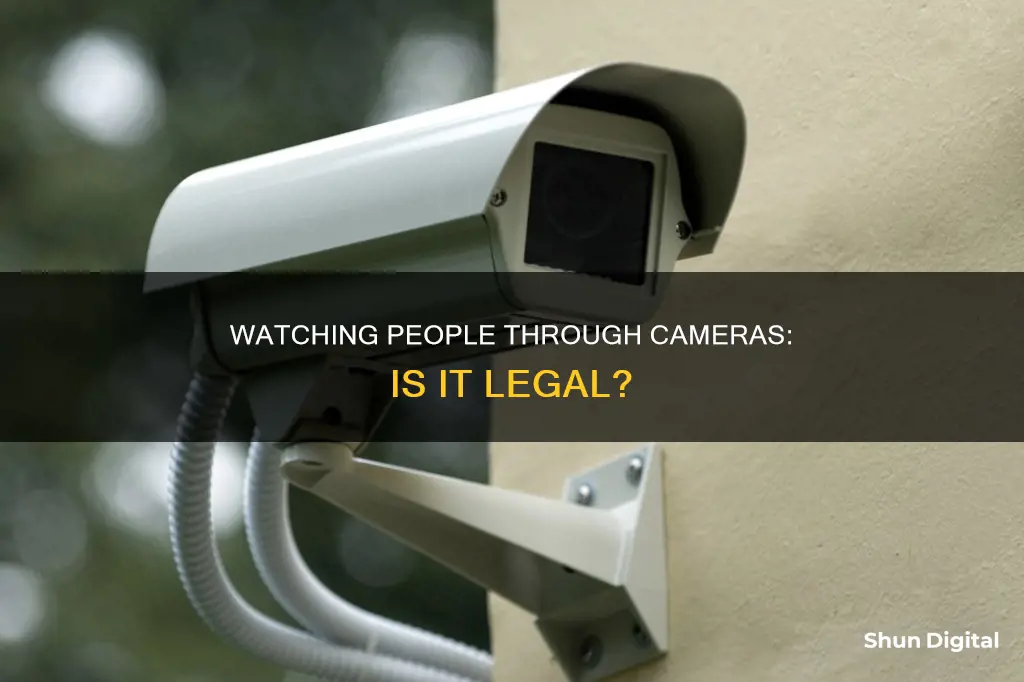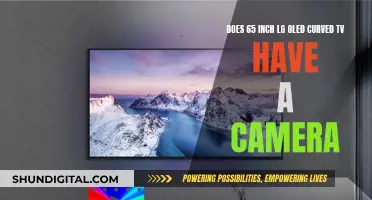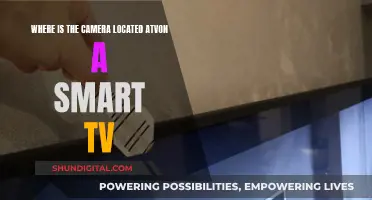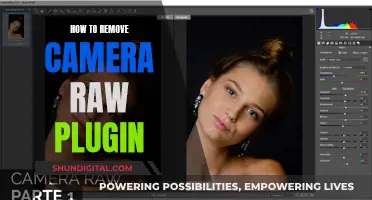
The legality of watching a person on camera depends on several factors, including the location of the camera, the subject being filmed, and whether audio is being recorded. In general, it is legal to install security cameras in your home, but it is illegal to record people in private places, such as bathrooms, bedrooms, and changing rooms. Similarly, in the workplace, employers can generally use video cameras, but there are limits on where they can be installed to respect employees' reasonable expectation of privacy. Additionally, federal wiretap laws prohibit the recording of certain oral communications without consent, which is why surveillance cameras typically don't have audio.
| Characteristics | Values |
|---|---|
| Legality of security cameras | No specific federal law, but national consent and privacy laws apply |
| Expectation of privacy laws | Generally legal to record video in public, but not in private places |
| One-party consent laws | Legal to record audio of a conversation if you are part of it |
| Two-party consent laws | All parties in the conversation must consent to being recorded |
| Workplace surveillance | Generally legal, but some states have explicit laws prohibiting video or audio surveillance in certain areas |
What You'll Learn

Consent laws
In the US, there is no specific federal law governing the use of security cameras, but there are national laws around privacy and consent that apply to video surveillance. There are also different regulations for recording audio and video footage.
The one-party consent law does not cover video surveillance, but if there is a conversation involved, the rule applies. As most security cameras record audio as well as video, you should operate your camera with the one-party consent law in mind.
However, the one-party consent law does not apply in all states. Some states have stricter security camera laws than what is permitted by the federal government. For example, California has a stricter law regarding recording conversations. Unlike many states, you need the consent of all parties involved for a legal recording, even if you participate in the conversation.
In general, it is not illegal to film or take photos of another person in public. However, laws allow for the scrutiny of "appropriate filming" in these settings. For example, filming in private areas like bathrooms or dressing rooms, or intrusive filming such as upskirting, is unlawful and may constitute sexual harassment.
Gabb Watch Camera Speculation: What Parents Need to Know
You may want to see also

Expectation of privacy laws
There are two types of expectations of privacy: subjective and objective. A subjective expectation of privacy refers to an individual's opinion that a certain location or situation is private, which can vary from person to person. On the other hand, an objective, legitimate, reasonable expectation of privacy is one that is generally recognised by society and may be protected by law.
Places where individuals typically expect privacy include residences, hotel rooms, and certain public places provided by businesses or the public sector, such as restrooms, private portions of jailhouses, or phone booths. This expectation extends to both physical and digital intrusions and even cell tower geolocation data.
However, it's important to note that an expectation of privacy must also be reasonable. For example, a reasonable person would not expect items placed in the garbage to remain private. Similarly, there is generally no expectation of privacy for things put into a public space, such as conversations with others or physical characteristics like voice or handwriting.
In the context of security cameras, expectation of privacy laws dictate that it is generally legal to record video in public spaces and within your property, as long as it does not violate an individual's reasonable expectation of privacy. This means avoiding areas with a higher expectation of privacy, such as bathrooms, bedrooms, changing rooms, and locker rooms.
Additionally, consent laws come into play when recording audio, with one-party consent laws allowing recording with the consent of at least one party, and all-party consent laws requiring the consent of all parties involved in the conversation.
It's worth noting that laws regarding security cameras and privacy can vary by state and local regulations, so it's important to refer to the specific laws in your area.
Paranoia or Reality: FBI Surveillance via My Camera?
You may want to see also

Surveillance in the workplace
Legal Restrictions on Workplace Monitoring
In the United States, workplace monitoring is subject to federal and state laws, including the Electronic Communications Privacy Act of 1986 (ECPA) and common-law protections against invasion of privacy. The ECPA, an amendment to the federal Wiretap Act, prohibits employers from intercepting oral, wire, and electronic communications without exceptions for business purposes and with employee consent.
Video Monitoring/Surveillance
Video surveillance is a common technique used by employers to monitor employee activities and minimise misconduct. However, employers must be mindful of state laws, the nature of the surveillance area (public or private), the capture of sound, and whether the camera is visible or hidden.
Recommendations for Employers
- Use video surveillance only when justified by a legitimate business purpose, such as preventing theft, investigating improper conduct, or monitoring employee performance.
- Limit video surveillance to the least intrusive time, place, and method.
- Use only visible cameras or inform employees in writing that hidden cameras may be used.
- Obtain written employee consent for video surveillance.
- Respect employees' reasonable expectation of privacy by not using video surveillance in areas like bathrooms, locker rooms, and lounges.
- Comply with union agreements and labour laws regarding video surveillance.
- Do not discriminate or retaliate against specific employees through selective video surveillance.
- Understand and comply with state and local laws governing video surveillance.
- Treat information obtained through video surveillance as confidential and limit access to authorised personnel.
- Adopt procedural safeguards to prevent the misuse of work-related video recordings.
Monitoring Online Activity
The rise of remote and hybrid work has led to increased monitoring of employees' online activities, with 43% of workers reporting such monitoring in 2024. This practice has sparked debates about workplace privacy and prompted many employees to adopt virtual private networks (VPNs) to safeguard their digital privacy.
While monitoring online activity can improve productivity and security, it also raises ethical concerns and negatively impacts employees' relationships with their employers, morale, and job satisfaction.
Recommendations for Employers
- Establish a clear and transparent policy regarding online monitoring, informing employees about the extent and guidelines for monitoring their online activities.
- Respect employees' privacy and ensure that monitoring practices do not infringe on their personal boundaries or cause undue stress and anxiety.
- Be mindful of the potential for discrimination and the invasion of employees' personal lives when monitoring online activities.
- Strive to balance the benefits of monitoring, such as improved productivity, with the need to maintain trust and morale among employees.
In conclusion, while surveillance in the workplace serves legitimate purposes, it must be implemented with careful consideration for employees' legal rights and privacy expectations. Employers should strive for transparency and ensure that monitoring practices are justifiable, ethical, and non-discriminatory.
Monitoring Remote Areas: Camera Surveillance Techniques
You may want to see also

Surveillance and privacy
Surveillance cameras are a common feature of modern life, often used for security and protection. However, their use raises important questions about privacy and consent. While there is no specific federal law governing the use of security cameras in the US, there are national consent and privacy laws that apply to video and audio surveillance.
Privacy Laws
In the US, it is generally legal to install a residential security camera and record video. However, citizens are also guaranteed a reasonable expectation of privacy, which extends to video recording. This means that it is illegal to record people in typically private places, such as bathrooms, bedrooms, and changing rooms. The same rule applies to audio recordings, with federal wiretap laws prohibiting employers from monitoring or recording certain employee communications.
Consent Laws
On a national level, it is legal to record a conversation, either in person or remotely, if you have the consent of at least one person. This is known as the "one-party consent" law. However, some states have stricter "two-party consent" or "all-party consent" laws, which require the consent of all parties involved in the conversation.
Workplace Surveillance
Workplace surveillance laws vary by state, with some states explicitly prohibiting video or audio surveillance in certain areas, such as restrooms or break rooms. Employers must also have a legitimate business reason for using video cameras to record employees and must notify workers about the use of cameras.
Protecting Yourself from Security Infringement
With laws around security cameras varying by state and county, it is important to understand the specific regulations in your area. When in doubt, it is best to err on the side of caution and avoid recording in areas where there is a reasonable expectation of privacy.
Viewing FLIR Camera Clips: A Step-by-Step Guide
You may want to see also

Legality of hidden cameras
The legality of hidden cameras varies depending on the location and the purpose of the surveillance. While there is no specific federal law governing the use of security cameras, there are national consent and privacy laws that apply to video and audio surveillance.
Consent Laws
In terms of consent laws, recording a conversation, either in person or over the phone, is legal if at least one person consents to it. This is known as the "one-party consent" law. However, some states have an "all-party consent" law, requiring all parties in the conversation to give consent for it to be recorded. These states include California, Delaware, Florida, Illinois, and Maryland, among others.
Expectation of Privacy Laws
Regarding privacy laws, it is generally legal to record video in public spaces, such as on public streets or in a hotel lobby. However, it is illegal to record in areas where there is an expectation of privacy, such as bathrooms, bedrooms, changing rooms, and locker rooms.
State-Specific Laws
The laws regarding hidden cameras also differ from state to state. For example, Georgia permits the use of video surveillance cameras in public and private settings as long as they are in plain sight. On the other hand, states like New Hampshire, Maine, Kansas, South Dakota, and Delaware require consent for hidden camera surveillance.
Hidden Cameras in Public Places
In many states, hidden cameras are permitted in public places, as individuals already have a reduced expectation of privacy when in public spaces.
Employers and Hidden Cameras
Employers typically have the right to place hidden cameras in the workplace, but they often choose to make them visible to encourage employees' best behavior.
Penalties for Illegal Surveillance
Violating privacy laws by installing hidden cameras without consent can lead to severe legal consequences, including fines and potential jail time.
In summary, the legality of hidden cameras depends on various factors, including location, consent, and the expectation of privacy. It is essential to research the specific laws and regulations in your state or country before installing any hidden cameras.
Big Brother: Is the Government Spying on Us?
You may want to see also
Frequently asked questions
It depends on the location and the purpose of the camera. There are no specific federal laws governing the use of security cameras, but there are national consent and privacy laws that apply to video surveillance. There are also different regulations for recording audio and video footage.
In the US, it's usually legal to install a residential security camera and record video. However, US citizens are guaranteed a reasonable expectation of privacy, which extends to video recording. This means you can't record people in typically private places (e.g. the bathroom) or areas where people would normally draw the blinds or close the door, such as bedrooms and changing rooms.
On the national level, it's legal to record a conversation—either in person or over the phone—if you have at least one person's consent. This is called the "one-party consent" law. In some states, however, all parties in the conversation must give consent when conversations are being recorded.







